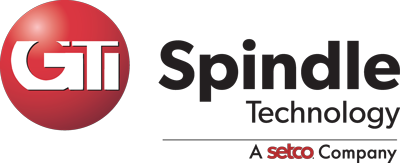While the COVID-19 pandemic isn’t quite behind us, restrictions in several states are beginning to relax and many companies are grappling with how to return to work responsibly. For essential businesses like the manufacturing industry, planning for the future has less to do with bringing workers back to the office and more to do with preventing disruptions from any potential future crisis.
The economic impact of the coronavirus will likely hit the hospitality, restaurant, and leisure industries the hardest, but manufacturing is far from immune to its effects. Due to supply chain disruptions and concerns about worker safety, companies are scrambling to figure out the best way to move forward so that production can return to normal without leaving themselves vulnerable to another potential wave of infections.
CNC Machining Will Shoot Through the Roof
CNC machining has been the preferred method of precision manufacturers for decades. It offers the highest threshold for accuracy, reduces waste, and improves production speed enormously. However, in the age of social distancing, perhaps the most appealing advantage CNC machines provide is the reduction in human labor. While some human presence is essential in every manufacturing setting, reducing the number of essential personnel is the best way to minimize the chance of infection among the remaining staff. While industries like aerospace, pharmaceutical, and automotive already require CNC machinery to meet their rigorous standards, it’s likely that we’ll see more industries with less stringent requirements adopting the high-performance tools to reduce their physical workforce.
Some Manufacturing Will Move Back to the US
During the peak of the coronavirus pandemic, supply chain disruptions impacted nearly every industry. From severe shortages in grocery stores of essential goods like toilet paper, to limited supplies of medical equipment, and everything in between, the COVID-19 pandemic painfully illustrated a critical flaw in the US’s dependence on foreign manufacturers. Now it’s clear that one of the critical advantages to overseas production is actually a detrimental weakness. The inexpensive labor force that lured American manufacturers poses a severe threat for future production. Returning some companies to the U.S. certainly has its own upfront cost, but it will likely to be viewed as an acceptable investment to ensure a less fragile supply chain in the future and to reduce the reliance on human labor.
Independent Repair Companies Will Offset Labor Concerns
Going forward, manufacturers will have a very high incentive to retain as much flexibility in their labor costs as possible. With some studies estimating that labor represents more than half of all overhead expenses and with so many employees being sent home, the value of having a trusted, third-party repair company has never been higher. For manufactures, utilizing independent spindle repair companies can help fill necessary labor gaps as businesses try to scale down operations.
To learn how you can strengthen your position in such an unpredictable market, contact the professionals at GTI Spindle Technology today.
About GTI Spindle Technology
At GTI Spindle Technology, we specialize in high-quality spindle diagnosis and repair. Getting your business back into full operation and minimizing downtime is our mission. We offer in-house, on-site, and emergency assistance for machine tool spindle failure analysis, spindle repair, and complete spindle testing. With an extensive range and expertise in a diverse group of industries, our customers know that they are getting the highest quality of spindle repair and customer service. Click here to find out more.

